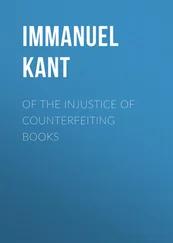Section III. System of Transcendental Ideas.
Table of Contents
We are not at present engaged with a logical dialectic, which makes complete abstraction of the content of cognition and aims only at unveiling the illusory appearance in the form of syllogisms. Our subject is transcendental dialectic, which must contain, completely a priori , the origin of certain cognitions drawn from pure reason, and the origin of certain deduced conceptions, the object of which cannot be given empirically and which therefore lie beyond the sphere of the faculty of understanding. We have observed, from the natural relation which the transcendental use of our cognition, in syllogisms as well as in judgements, must have to the logical, that there are three kinds of dialectical arguments, corresponding to the three modes of conclusion, by which reason attains to cognitions on principles; and that in all it is the business of reason to ascend from the conditioned synthesis, beyond which the understanding never proceeds, to the unconditioned which the understanding never can reach.
Now the most general relations which can exist in our representations are: 1st, the relation to the subject; 2nd, the relation to objects, either as phenomena, or as objects of thought in general. If we connect this subdivision with the main division, all the relations of our representations, of which we can form either a conception or an idea, are threefold: 1. The relation to the subject; 2. The relation to the manifold of the object as a phenomenon; 3. The relation to all things in general.
Now all pure conceptions have to do in general with the synthetical unity of representations; conceptions of pure reason (transcendental ideas), on the other hand, with the unconditional synthetical unity of all conditions. It follows that all transcendental ideas arrange themselves in three classes, the first of which contains the absolute (unconditioned) unity of the thinking subject, the second the absolute unity of the series of the conditions of a phenomenon, the third the absolute unity of the condition of all objects of thought in general.
The thinking subject is the object-matter of Psychology; the sum total of all phenomena (the world) is the object-matter of Cosmology; and the thing which contains the highest condition of the possibility of all that is cogitable (the being of all beings) is the object-matter of all Theology. Thus pure reason presents us with the idea of a transcendental doctrine of the soul (psychologia rationalis), of a transcendental science of the world (cosmologia rationalis), and finally of a transcendental doctrine of God (theologia transcendentalis). Understanding cannot originate even the outline of any of these sciences, even when connected with the highest logical use of reason, that is, all cogitable syllogisms — for the purpose of proceeding from one object (phenomenon) to all others, even to the utmost limits of the empirical synthesis. They are, on the contrary, pure and genuine products, or problems, of pure reason.
What modi of the pure conceptions of reason these transcendental ideas are will be fully exposed in the following chapter. They follow the guiding thread of the categories. For pure reason never relates immediately to objects, but to the conceptions of these contained in the understanding. In like manner, it will be made manifest in the detailed explanation of these ideas — how reason, merely through the synthetical use of the same function which it employs in a categorical syllogism, necessarily attains to the conception of the absolute unity of the thinking subject — how the logical procedure in hypothetical ideas necessarily produces the idea of the absolutely unconditioned in a series of given conditions, and finally — how the mere form of the disjunctive syllogism involves the highest conception of a being of all beings: a thought which at first sight seems in the highest degree paradoxical.
An objective deduction, such as we were able to present in the case of the categories, is impossible as regards these transcendental ideas. For they have, in truth, no relation to any object, in experience, for the very reason that they are only ideas. But a subjective deduction of them from the nature of our reason is possible, and has been given in the present chapter.
It is easy to perceive that the sole aim of pure reason is the absolute totality of the synthesis on the side of the conditions, and that it does not concern itself with the absolute completeness on the Part of the conditioned. For of the former alone does she stand in need, in order to preposit the whole series of conditions, and thus present them to the understanding a priori . But if we once have a completely (and unconditionally) given condition, there is no further necessity, in proceeding with the series, for a conception of reason; for the understanding takes of itself every step downward, from the condition to the conditioned. Thus the transcendental ideas are available only for ascending in the series of conditions, till we reach the unconditioned, that is, principles. As regards descending to the conditioned, on the other hand, we find that there is a widely extensive logical use which reason makes of the laws of the understanding, but that a transcendental use thereof is impossible; and that when we form an idea of the absolute totality of such a synthesis, for example, of the whole series of all future changes in the world, this idea is a mere ens rationis, an arbitrary fiction of thought, and not a necessary presupposition of reason. For the possibility of the conditioned presupposes the totality of its conditions, but not of its consequences. Consequently, this conception is not a transcendental idea — and it is with these alone that we are at present occupied.
Finally, it is obvious that there exists among the transcendental ideas a certain connection and unity, and that pure reason, by means of them, collects all its cognitions into one system. From the cognition of self to the cognition of the world, and through these to the supreme being, the progression is so natural, that it seems to resemble the logical march of reason from the premisses to the conclusion. 41 Now whether there lies unobserved at the foundation of these ideas an analogy of the same kind as exists between the logical and transcendental procedure of reason, is another of those questions, the answer to which we must not expect till we arrive at a more advanced stage in our inquiries. In this cursory and preliminary view, we have, meanwhile, reached our aim. For we have dispelled the ambiguity which attached to the transcendental conceptions of reason, from their being commonly mixed up with other conceptions in the systems of philosophers, and not properly distinguished from the conceptions of the understanding; we have exposed their origin and, thereby, at the same time their determinate number, and presented them in a systematic connection, and have thus marked out and enclosed a definite sphere for pure reason.
41 The science of Metaphysics has for the proper object of its inquiries only three grand ideas: GOD, FREEDOM, and IMMORTALITY, and it aims at showing, that the second conception, conjoined with the first, must lead to the third, as a necessary conclusion. All the other subjects with which it occupies itself, are merely means for the attainment and realization of these ideas. It does not require these ideas for the construction of a science of nature, but, on the contrary, for the purpose of passing beyond the sphere of nature. A complete insight into and comprehension of them would render Theology, Ethics, and, through the conjunction of both, Religion, solely dependent on the speculative faculty of reason. In a systematic representation of these ideas the above-mentioned arrangement — the synthetical one — would be the most suitable; but in the investigation which must necessarily precede it, the analytical, which reverses this arrangement, would be better adapted to our purpose, as in it we should proceed from that which experience immediately presents to us — psychology, to cosmology, and thence to theology.
Читать дальше












